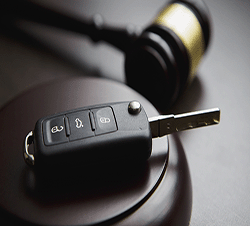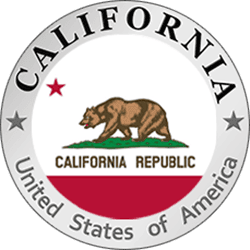California Traffic Court Records Search
How to Run a California Traffic Court Records Search
Most adult drivers that have received a moving violation in California, have had to go to traffic court. The primary point of the California traffic court is to handle cases related to moving violations and driving infractions. This court is responsible for handling cases where drivers can contest a ticket or plead guilty and pay their fines. In some circumstances, such as Drunk Driving Citations, these court case might result in misdemeanors or felonies which are quite a bit more serious.
To access California Traffic Court Records you have a few options. You can lookup these records using either the state court websites, or county courthouse websites if they offer online access to electronic records. Before you begin you will want to gather some information. You will need the full name of the person involved, their citation number, or their vehicle license plate number. In some circumstances you can locate these records by searching with the ticketing law enforcement agency and the date of the citation.
Accessing CA Traffic Court Records: Step-By-Step
Accessing CA traffic court records is a relatively straightforward process. These records are public documents, meaning they are available to anyone who wishes to view them. If you do not remember what county the case was heard in, you can use the state's judicial website and search for your records that way. You will need to know the full name of the person that was involved, or their traffic citation information.
Here is a simple step-by-step guide to accessing these records:
1). Identify the specific courthouse where the case was heard.
2). Visit the court's website or physical location.
3). Navigate to the records or archives section.
4). Search for the case using the case number, name of the defendant, or date of the case.
5). Request the record, either for viewing or for a copy to be made.
Online vs. In-Person Document Retrieval
While both online and in-person methods of document retrieval have their advantages, the choice is mostly personal preference. Accessing traffic court records online is often faster and more convenient, allowing you to access these from home or anywhere.
There is one caveat to online access to court records; older cases or those involving sensitive information may require you to visit the courthouse in person. An in-person visit can also be helpful if you have questions or need some additional assistance.
The Superior Courts of California's Role in Traffic Cases
The Superior Courts of California is the courthouse of first instance for all traffic violations, whether they are infractions, misdemeanors, or felonies.
They are responsible for hearing the case, reviewing the evidence, and making a ruling. They usually wrap up most moving violation infraction cases in one day however, misdemeanor and felony cases can take longer. The judge typically makes the ruling, there is not usually a jury involved unless the case is serious enough to warrant one.
Privacy and Public Access to Traffic Court Records
While traffic court case records are generally public, there are certain privacy restrictions on some information. Personal information such as addresses, phone numbers, and social security numbers are redacted to protect the privacy of the individuals involved. Also, any cases that involve juveniles will not be publicly available for their privacy protection.
The balance between privacy and public access can be delicate. While the public has a right to access these records under the California Public Records Act, some information may not be available for privacy reasons.
How Do I Lookup My California Traffic Ticket?
There are a few of options when looking up your CA traffic citations online. First, you can contact the issuing law enforcment agency, such as the police or highway patrol, and provide them with either your name or citation number. The second option is to use the state's public access system to lookup citations by citation number and name, or by your vehicle license plate number. This is a good option if you have lost your original ticket and don't know the citation number.
Is a DUI Considered a Felony in California?
A DUI in California can be considered a felony if you were in an accident and caused bodily harm or significant property damage. These are very serious criminal charges that can lead to extensive jail time, restitution and probation. Normally a DUI is considered a misdemeanor if you are pulled over, or were stopped a check-point and were over the legal limit, and driving impaired. In both situations you will most likely be arrested and booked into county jail.
What To Do After Getting a DUI in California
After you get a DUI in the state of California you should hire an attorney. The severity of your case will depend on the circumstances, if you case is considered a misdemeanor or felony case. Either way a lawyer will be a good option to help you keep your penalties low and help you to potentially minimize your criminal charges. You will lose your driver's license temporarily, and may face some jail time depending on your situation. You might also be tasked with some community service depending on the outcome of your case. The next step will be to get a temporary driver's license so that you can go to work or pickup your kids from school. You will need to complete a DUI program through the DMV obtain a special auto insurance policy called an SR22.


